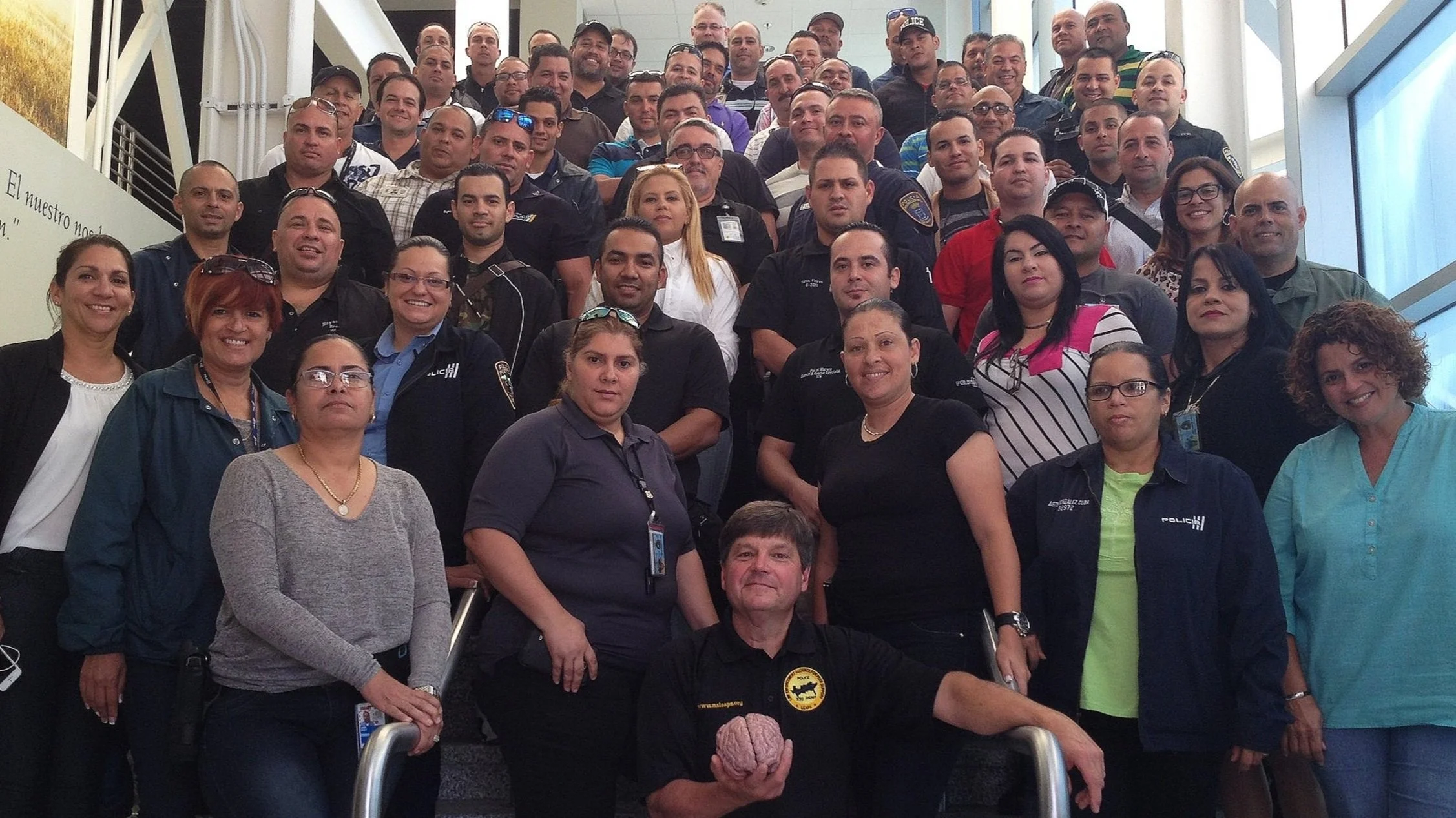LEAPS Peer Support Class
Peer Support is much more than responding to high-stress events (often called critical incidents or traumatic events). It’s about caring for fellow officers through a current crisis or one that may have happened decades ago. Only a law enforcement officer truly understands another officer, and the same holds for dispatchers. This course goes beyond critical incident management to teach officers and dispatchers true peer support. Participants learn specific methods to assist in officer-involved shootings, daily job stress, line-of-duty deaths, suicide prevention, and family survival in law enforcement. Other topics include conducting “defusings” and “coaching sessions.”
Key components and objectives of the course:
Introduction to Peer Support (2 hours): This section covers the unique stresses of law enforcement jobs, the importance of peer support, and the basics of establishing a peer support team.
High Stress Events and Officer-Involved Shootings (6 hours): Detailed exploration of reactions to high stress events, including officer-involved shootings, and strategies for dealing with these reactions.
General Stress in Law/Drug Enforcement (2 hours): Focuses on identifying stress and techniques for managing and reducing it.
Self Introduction and Sharing by Students (4 hours): Allows students to share their experiences related to stress, high stress events, and how they impact their families and work.
Fit for Duty (2 hours): Addresses how to recognize mental disorders and the need for evaluations by behavioral health professionals.
Defusing (3 hours): Teaches techniques for responding to the immediate aftermath of high stress events to prevent long-term psychological harm.
Coaching Sessions/1 on 1's (4 hours): Involves practical exercises where students conduct one-on-one sessions to apply what they've learned about managing stress and supporting colleagues.
Suicide Recognition and Prevention (2 hours): Educates on recognizing signs of suicidal ideation among officers and intervention strategies.
Line of Duty Deaths (2 hours): Offers guidance on supporting officers and families following a line of duty death, including dealing with grief and logistical considerations.
Family Survival (2 hours): Focuses on the unique challenges faced by law enforcement families and strategies for strengthening relationships and preventing divorce.
Peer Support isn’t just a class. It’s a life-changing experience. Past attendees confirm:
“I wish every cop, if not every human being, could take this course and learn what it takes to survive and thrive, and to help others survive and thrive.”
“The best class of my career, helping me in so many ways!”
“I came in skeptical, and now I’m a firm believer in peer support. This week at RCTA has literally saved and changed my life.”
“This class was amazing! It was so much more than I was expecting.”
“The most beneficial class I’ve taken in 16 years—it had a profound impact on me.”
While other courses teach how to deal with citizens, this one teaches how to support fellow officers—and yourself. This 4-day, 32-hour course is POST accepted and certifies officers and dispatchers for peer support in every state with certification requirements.
